|
Saadia Faruqi is a Pakistani American writer, self-taught interfaith activist, and speaker who does not shy away from how the world has come, in recent years, to view the country of her birth, Pakistan. Thanks to ‘newsworthy’ reports from that country that ‘range from violent to pitiful’, most westerners, she argues in the introduction of her debut book of short stories, have now come to think of the country she left at 21 ‘either as a haven for extremists or a prison for women and minorities’ with little reference to the not-so-newsworthy stories pertaining to ‘Pakistan’s rich culture or colourful daily life’. ‘Brick Walls’ is a collection of seven stories about fictional characters in ‘situations based on metaphorical walls, unique struggles created by the exceptional culture and environment that is Pakistan’. They were inspired by the writer’s visit back to Pakistan when her father, a secret philanthropist, passed away in 2012 – Faruqi lives in Houston, Texas. Pakistanis face these brick walls every day, and how they surmount them is called 'life'. I can't join them in their struggles. I can only tell their stories' - 'Brick Walls' by Saadia Faruqi The seven stories that make up the collection are stand alone stories in which each offers up its unique memorable plot made up of everyday characters going about doing unexceptional everyday things. Yet, in each story the ordinary is transformed into the extraordinary and it is anyone's guess what happens next. That is not to say that the stories do not share a common theme, for they do. However, it is one that is subtly delivered (no preaching here) allowing for both the characters and the readers to grow, possibly to learn, from the experience: That although we are all so very different when it comes to our beliefs, cultures, and languages, each of us seeks to be happy, able to live a life free from suffering and pain, a life with a better future for our children and ourselves. And when it comes to characters and settings, writer Saadia Faruqi, has definitely done her homework. She knows her characters inside out, they are believably real, exceptionally engaging and interact really well with the settings conjured up by the writer. The characters are meant to be who they are and they are meant to be where Faruqi has decided they should be. Every story flows easily into its conclusion and many characters will remain with the reader long after their stories have ended. As Faruqi seamlessly and convincingly shifts between male and female voices, old and young, religious and secular, it becomes easy to forget that the same person penned each story. This is a superbly well-executed endeavour and testament to Faruqi’s command of her craft. Right language, right tone, right story to a tee! So much of traditional, as well as modern music, is about God and religion. Not just here in Pakistan, where we have the naat and the qawwali, but in the West too, where they have Christian music in a variety of formats. It's because all human beings find solace in music of some sort' - from the story 'Tonight's the Night' - 'Brick Walls' by Saadia Faruqi So, why must you read this book? Because 31-year old Lubna’s story will lodge itself forever deep in your heart and the story of Farzana, the cantankerous recently liberated 65-year-old grandmother will offer moving insight to what it means to be old. Read it for Nida, the ten-year-old girl with a cricket obsession; Asma the lackluster seamstress increasingly seeking refuge in a dream world of angels; Faisal the would-be terrorist, Javed Gul the Pushto rock singer offering hope to the people of Peshawar, and Rabia Nawab, daughter of Malik Nawab, 'mistress of them all, princess of her own little private Kingdom' and the love of her life Pasha. If what Madeleine L’Engle says is true in that stories make us more alive, more human, more courageous, more loving, then writer Saadia Faruqi with her collection of stories adds much to this narrative; A narrative that gives reign to the seldom heard voices of Pakistan. Faruqi’s stories of her fellow country men –though mainly women - shine a light on ‘a nation full of kind-hearted individuals struggling to make their society better with optimism and resolve’. I love what I'm doing, because I feel that I'm offering hope of a new tomorrow to so many people living in Peshawar. If I die today I will feel as if I have left a mark on this little corner of the world, and I'll die happy' - from the story 'Tonight's the Night' - 'Brick Walls' by Saadia Faruqi In a perfect world Faruqi would like nothing more than an endless supply of mystery thriller novels. On her website, she writes that she is ‘still waiting for someone to write that perfect Pakistani or Muslim spy/crime story, preferably with a heroine named Saadia. I have never had such intentions and yet to my delight one of her characters has my first name and lives in one of the most moving stories of the collection. Suffice to say that 'Rana' - in the story - is 'a retired therapist with decades of experience helping mentally unstable patients'. She practically saves the heroine's life. Not bad, right? Now, I shan’t tell you which one it’s in so you’ll just have to read the book to find out! Saadia Faruqi is a Pakistani American writer of fiction and nonfiction. She writes for a number of print and online publications about the global contemporary Muslim experience and about interfaith dialogue. She has trained law enforcement on cultural sensitivity issues and offers community college classes on a variety of topics related to Islam and Muslims. She is editor-in-chief of Blue Minaret, a magazine for Muslim art, poetry and prose. Her short stories have been published in several American literary journals and magazines. Check out her fiction and non fiction HERE. For ten interesting facts about Saadia Faruqi, click HERE & to read an extract, click HERE.
1 Comment
by Rana Asfour When in 1967, 22-year-old, LSE graduate, Julia ‘did as she was told’ and resigned from her first proper job to marry diplomat Oliver Miles, little was she prepared for the roller coaster lifestyle of British diplomatic life.
The couple had met on Oliver’s first day as one of six Resident Clerks on the top floor of the Foreign Office building from where all out-of-hours Foreign Office business was taken care of, albeit it in quite an unorthodox manner. ‘Often when the phone rang,’ writes Julia, ‘the duty clerk would be on the loo, or in the bath, in the big, bathroom papered in dark green. He would emerge, receiver clasped under chin, wire stretched to the limit and towel draped strategically, gesturing urgently for a notebook and pencil’. After a brief time on the job and after many gallons of Mateus Rose, Oliver is posted to Aden. Two years later, the couple marry on a freezing February day and it doesn’t take long for Julia to realise that one of her biggest challenges in her new role as diplomatic wife was going to involve creatively trying to keep herself busy whether at home or abroad. Nonplussed and with no immediate posting for Oliver in view, Julia dives into her new role and joins a ‘Going Abroad Course’ for five days of ‘pep talk, stiff-upper-lip training, a demonstration of the latest fashion in spycraft and a spoof ‘Cocktail Party’’. She attends a meeting at ‘Diplomatic Neighbours’, an organisation that supports and entertains the wives of foreign diplomats in London as well as others offered by the ‘Diplomatic Service Wives Association’, ‘a support group of volunteer wives with a rather genteel approach that was established by the FCO on welfare grounds, after a wife had committed suicide abroad’. Discouraged by the FCO from seeking employment, Julia goes ahead and finds one anyway. However, after two years of married life and in the very same week that she qualifies as a full social worker, Oliver is posted. The year is 1970 and the couple set off on their first assignment together to Cyprus – a place Julia describes as ‘a sanctuary and sometimes a terrorist convenience’ and where later she is visited by George Best and Derek Dougan among a string of many other high profile names. ‘The Ambassador’s wife’s Tale’ is Julia Miles’s account of her time following her husband’s diplomatic career from one posting to another and adjusting to the trials and tribulations that accompanied each and every one. Although women’s role in the diplomatic service shows a positive –if rather slow – improvement, Julia – always amused at the public perception of the diplomatic lifestyle – paints a picture that tells of the limitations and highly demanding expectations placed on the wives of the heads of missions by the patriarchal FCO as well as highlighting the extremely vital role that a diplomatic wife plays in a diplomat’s life; a rather underappreciated, unpaid, behind-the-scenes role. The couple has lived in Cyprus, Saudi Arabia, Athens, Libya, Belfast and Luxembourg and so it comes as no surprise that Julia has a treasure trove of stories to share. From near disastrous dinner parties, to dining in the most elegant of settings with the rich and famous as well as members from Royal families and world renowned political figures, you can rest assured that Julia’s observant eye for detail would have missed nothing. A determined woman who, spurred by a feminist confidence to assert her rights and that of other diplomatic wives, she is cowered by no one, preferring –against better judgment at times - to wear her heart on her sleeve and in turn to write openly about the conditions of diplomatic wives and the often challenging circumstances she, and others like her, have had to put up and make do with. Throughout her memoir, Julia raises various criticisms particularly directed at the FCO’s treatment and disregard for the diplomatic wives’ concerns. In one example she writes: ‘The Foreign Office loftily exploited the diplomatic wives’ good nature and any complaint to the Diplomatic Service Wives Association was met with, ‘It’s for the love of your husband’’. Julia went on to have 4 children (two Cypriots, one Saudi and one Greek she would joke) and even that brought no respite from burgeoning diplomatic duties. ‘We were expected to entertain as much as possible, limited only by our entertainment allowance and the amount of energy and commitment that I, as cook and hostess, could summon up’. Matters were not helped when a remit by Heath in 1970 was to look at ways to cut government spending resulted in the government’s decision to cut the British diplomatic service finances by at least 1% every year, gradually eroding services. This proved particularly difficult for the couple’s posting in Saudi Arabia which did not help an already challenging post in a country that seemed not only to have an especially virulent effect on personal relationships but there were signs of depression and stress among the secretarial staff too. For Julia, it was the only place that tested the limits of how much more she could take before she threw in the towel. Luckily, she persevered. Although the couple only spent a year in Saudi Arabia, Julia’s account of her time there is colourful. With it being nearly impossible to obtain a visitor’s visa to the Kingdom, Julia was homesick and finding the post quite challenging. Although Saudi was the world’s honeypot in 1976, she was incensed by the country’s restrictions on women’s freedoms. She writes about Princess Saud who ‘like most Saudi women her spirit had been extinguished long ago by the system’, finding a toothbrush in her Coco Cola bottle, and starting soirées at the embassy ‘deliberately trying to widen Saudi women’s horizons’; gatherings that inadvertently helped her husband establish valuable connections with the Saudi men waiting in the kitchen to collect their womenfolk. She writes of the censorship exercised against freedom of the press, limited water, flour and oil supplies and ‘stakes a claim to having first introduced the pineapple into Saudi Arabia’. She also writes her account of the circumstances surrounding the death of Princess Misha’al, the great niece of King Abdul Aziz – the founder of modern Saudi Arabia. Parties and ‘whinging’ aside, the exciting – if not terrifying – part of the book is Julia’s account of the events that take place in Libya – Oliver’s first posting as Ambassador – that resulted from the shooting of PC Yvonne Fletcher outside the Libyan Embassy in London on 17 April 1984. The embassy – with Julia and her children still inside - is placed under a nine-day siege and then when it looks like Prime Minister Thatcher is about to break all relations with the country following a bomb (presumed to be Libyan) at Heathrow, it becomes a ‘cloak and dagger behaviour to get things sold and out of the embassy in time’ before the evacuation of Libya. Although a stressful time by all accounts, Mrs. Miles comes out trumps and it is her stoicism and admirable quality of ‘making-do’ that see her and the other British families through the stressful ordeal. ‘An Ambassador’s Wife’s Tale’ is a very engaging read. It offers a glimpse into an often glamourised world associated with characters as in an Ian Fleming novel. Yet, as Julia proves, at the heart of these missions are ‘individual diplomatic personnel, traditionally accorded respect and deference by the host country, often becoming pawns in international squabbles – in the worst cases as victims of kidnapping or even assassination. Diplomats’ children flying unaccompanied between post and school become a source of anxiety for mothers waving them off from foreign airports’ and always the knowledge that so much time is lost away from loved ones while in ‘vassalage to the Foreign Office’. Julia succeeds from the start in building enough tension into the narrative so that her readers will be turning pages to find out what happens next. The heart of the book – its climax even- lies in the Libya siege – the event that was to thrust Julia into the spotlight. By the time you’re done with this inspiring, bitter-free, entertaining memoire, you’ll understand why after 28 years of being an Ambassador’s wife, and finally ‘having her own front door’, it was time for Julia to tell her story and why the world would do well to listen. 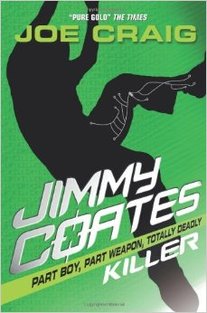 Jimmy Coates is a regular 11-year old boy who is suddenly forced to realize that life with his family in the ‘neo Democratic State of Great Britain’ must come to an abrupt end. Jimmy himself has also changed: he develops sensations that start at the pit of his stomach forcing him to think and do things out of his control; He can sense things more acutely, his reflexes are magnified, he can run and swim faster than he ever could before, he is stronger, able to execute perfect martial arts moves he never even knew he possessed and he can even fly a helicopter. The bad news though is that he is now on the run from people who he believes are out to harm him, his parents have been kidnapped, he’s not sure where his sister is and every time he asks for anyone’s help, he puts their life in danger too. And worst of all? He can’t trust anyone. This is a fantastic, fast-paced book that is gripping from its first pages when things quickly begin to kick off as soon as a group of suited men arrive at Jimmy’s house one evening demanding to see him. His mum shouts ‘run Jimmy’ and that is exactly what he does, but not before he sees his parents placed into a black van with a green stripe and driven away. Everything about Jimmy’s old life is officially over. Along the way Jimmy meets an interesting character called Mitchell and gets a private audience with Ares Hollande, the British Prime Minister. In a horrific twist of events Jimmy is ordered to assassinate a certain Christopher Viggo if he is to save his family. Thankfully, Jimmy is not alone. With the help of a few loyal and very brave friends like Felix Muzbeke (who is a smart and very funny character), Eva and others he meets along the way, Jimmy not only gets the help he needs but also manages to uncover a whole web of intricate lies, intrigue, suspense, and spies to boot. Ultimately Jimmy has to deal with the biggest revelation of all: who he really is and how that will affect not only the outcome of the mission he has been tasked with but with making sure his family and friends remain safe in the process. ‘Jimmy Coates: Killer’ is an adventurous, thought-provoking thriller that is also about friendship, family, loyalty, humanity and the decision to do the right thing when all that is expected of you is to do otherwise. It was written in 2005 by British writer Joe Craig and is the first book in the Jimmy Coates’ series. In the US it is published under the title ‘Jimmy Coates: Assassin’. It was a finalist for the 2006 Manchester Book Award, and won the Bolton Children's Book Award 2006.  Dr. Frankenstein’s mumbling, cat-allergic ‘Monster’ creation is bored. Really bored. So, the Doctor decides to find him a mate, whereby ‘finding’ when it comes to this doctor entails the acquisition of a dead thing that the doctor can bring back to life; something he’s really good at. However, things are not so easy this time. The terrified villagers had long cottoned on to the Doctor’s experiments and had the cemetery cordoned off with high walls none of them daring to come anywhere near the volcano where the doctor’s castle perches. However, in one serendipitous moment, Igor the cat comes in dragging a ‘thing’ he’s mangled into a semi-pulp. The doctor, being the genius that he is, gets a brilliant idea; an idea that is ‘very nearly as brilliant as the time he’d crossed a tadpole with a flamingo to create a frog that could stand on one leg’. So, at night, after reading a few bedtime stories for the Monster, one of which was ‘’Goldilocks and the Three Corpses’, the Doctor eagerly goes back to his lab and gets busy. After many adjustments, nips and tucks, ‘Frankenthing’ is born. Monster is so very very pleased with his new friend and even Dr. Frankenstein is as happy as a ‘unicorn with two horns’. The only one unhappy with the turn of events is Igor the cat who patiently awaits a chance to re-kill ‘Frankenthing’. Meanwhile, the two new friends spend every minute together playing, helping each other out and ‘eating Dr. Frankenstein out of house and home’. So, as the castle runs out of food, Dr. Frankenstein decides to go out for supplies. He instructs the household members that whatever they get up to they are not to enter his lab. They all agree and Dr. Frankenstein heads out on his bike. As expected, things don’t go well and soon the household members find themselves, where else but in the lab. Igor decides that with the doctor away, what better opportunity to finish off ‘Frankenthing’ once and for all. Things go from bad to worse culminating into a most unexpected horrific outcome, with the only way out of their mess is for Igor and Frankenthing to lay down their differences and work together if they are to save the one person they all truly love. ‘Frankenthing’ is a highly engaging story written by an award-winning cartoonist. That said, the reader is treated not only to a fantastic story line but also to equally amazing illustrations throughout the book. The tone throughout is surprisingly lighthearted taking into account some really gory scenes. Adults and children, but mainly adults, who read this book might go ‘ugh!’ on more than one occasion, but there’s little doubt this precious gem of a story will fail to raise a chuckle or two thanks to its quirky characters, its abounding similes, silly jokes and polished illustrations. A real delight! 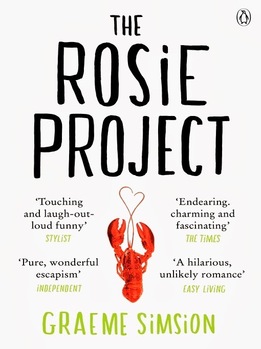 Don Tillman is a post-doctoral researcher at the very prestigious Melbourne University. It is obvious from the beginning that Don is ‘wired different’. His idiosyncrasies such as calculating people’s height and BMI when he first meets them, calculating the exact number of minutes it will take him to get from one place to another, being ‘very comfortable with repetition’, have served to set him apart from other people. Don has, by his own admission, never found it easy to make friends so it is unsurprising that he can name only two. Gene, a geneticist who Don relies on to ‘find solutions to social problems’ and who has a ‘project to have sex with women of as many different nationalities as possible’ and Gene’s wife Claudia, a clinical psychologist who is Don’s counselor turned friend. In spite of being ‘39 years old, fit, tall, and intelligent with an above average income for an associate professor’ and thus the belief that he would be attractive to a lot of women, the reality remains that his inability to make friends seems to ‘have also affected attempts at romantic relationships’ bringing rise to what Don has labeled ‘The Wife Problem’. However things are about to change especially after ‘The Apricot Ice-cream Disaster’ while on a date with Elizabeth, the computer scientist, proves to be the final straw forcing Don to abandon the ‘traditional dating paradigm’ because the ‘probability of success did not justify the effort and negative experiences’ of being out with women who clearly did not get him. And with that the ‘Wife Project’ questionnaire is born. A questionnaire designed to filter out female candidates in order to locate Don’s ‘perfect woman’. It is while Don is engrossed in securing candidates for his questionnaire that Rosie steps into his life. Establishing from the start that Rosie is the complete and absolute opposite of everything that he is looking for in the perfect woman and regardless of the great time he has with her on the first day that they meet, he still resolves never to see her again, because that would be ‘in total contradiction to the rationale for the Wife Project’. However, Rosie is on a quest to uncover her biological father and asks for Don’s help. He agrees and so the ‘Father Project’ is launched. The duo’s decision to embark on this project predictably lands them into comical, at times dangerous situations that only serve to bring this very unlikely couple closer together. This is a beautiful engaging love story and with Don an undiagnosed Asperger’s, the novel makes for quite an interesting read. In spite of the fact that Don comes across as witty, caring, and observant, yet the question that imposes itself along the course of the entire novel is can someone like him ever be able to pull off a romantic relationship. Don has a lot going for him: he is organized, meticulous, focused to a fault, with a wide ability for innovative thinking and rationality and he is very witty and funny to boot but he is also ‘sometimes accused of being inflexible’ and ‘criticized for a perceived lack of emotion’ as well as not being ‘good at interpreting expressions’. With subtlety not his strongest point combined with inexperience in matters of the heart having had ‘little contact with people outside academia’, it is therefore, both heart – warming and breaking - to see how an individual such as Don works ‘in human-sponge mode’ to absorb all that he needs to learn about the baffling rules of society to win over Rosie; the most beautiful woman he has ever met. Check out the sequel ‘The Rosie Effect’ which was released in September 2014 These days whenever someone asks me to suggest a book, the first title that jumps to my mind is Jenny Nordberg’s 2014 release ‘The Underground Girls of Kabul’. I guarantee that even those of you who prefer the non-fiction genre will be nothing less than spellbound. Riveting, engaging and very beautifully written, it reads like a work of fiction with the added bonus of being completely true. Its other bonus, which is my personal favorite, is that finally there comes a book with a refreshing take on one of the most exhausted of subjects: Afghanistan.
‘The Underground Girls of Kabul’ offers insight into one of the Afghanistan’s rarely acknowledged societal practices: the “Bacha Posh’; children born female, yet raised and treated as a male until the age of puberty at which time they are expected to revert back to their natural gender in time for marriage. Jenny Nordberg follows the bacha posh through childhood, puberty, married life and childbirth attempting to examine ‘the profound effects the practice has had on generations of Afghan women and what it means for girls everywhere’. I had never heard or come across the ‘bacha posh’ before. As it seems the author herself stumbled onto the subject quite by accident as well. An investigative journalist, she had been researching a television piece on Afghan women waiting to interview a female member of the country’s fairly new parliament to ask her about how it felt to be a woman in Afghanistan. It is as she waits to speak to Azita who is on the phone, and while playing with Azita’s twin girls in the next room, that Mehran, aged six, in bright red denim shirt and blue pants, ‘chin forward, hands on hips, swaggers confidently into the room, looking directly’ at Nordberg and pointing a toy gun in her face. Mehran, a seemingly confident boy, with black hair like his sisters, only short and spiky, is in fact ‘Mahnoush’, a girl. That there is little knowledge of the practice, an ‘anomaly’ as one Afghani diplomat told Nordberg, should come as no surprise to anyone who truly knows and understands the region explains Carol Lu Duc. Carol has been a resident of Afghanistan since 1989 and has for almost two decades worked for nongovernmental organizations and as a consultant to government ministries. She explains to Nordberg that ‘the reason that no one seems to have documented any historical or contemporary appearance of little girls dressing as boys is entirely understandable. Even if they should exist, little documentation has survived Kabul’s various wars and revolving-door regimes’. The bacha posh are privileged children. They are after all responsible for elevating the status of their families and bringing in extra income as their role now allows them to go out and assist the men in providing for the family. This is a rare opportunity (if it could be called that) to play football outside, wear pants, ride in the front seat, address men, and even shout in public. In a society where patriarchal rules dominate the roost, they are privy to a world that, as a girl, they will never experience. In only the rarest cases, is this arrangement permanent, for once puberty commences, pants are traded for the burqa and matters go back to how they would have been before. The girls are now obligated to shed the role of ‘boy’ in preparation for the role of ‘housewife’ and then ‘mother’. Understandably, Nordberg writes, it is not always an easy transition. Not only do women such as Shukria in the book struggle with the idea of her gender reversal and the impact it has on her freedom, but what was ‘most disturbing’ to her after she was transformed back, to be married, was her ‘inability to perform the most basic female tasks’ she was told would come naturally; ‘Dinner was served raw or burned, laundered clothes were not clean’. When she worked on her exterior, things were no better and the all-female gatherings ‘made her extremely nervous and embarrassed’. And yet she endured. Others have not been so lucky battling with occasional bouts of depression and suicide attempts. However, the full gravity of such a practice has yet to be studied. The book may be about the bacha posh but it is also an insightful study into the lives of the women who make such a practice possible. The mothers. Nordberg’s documentation of the intricate details of the lives these women lead, the conversations she records, the joys and the upheavals she witnesses firsthand are poignant examples that dispel any belief once held regarding the rhetoric justifying war on a country to ‘save’ its women. In the interviews dispersed throughout the book we get the honest, sometimes brutal, reality of what it is to be a woman in Afghanistan. The discussions with the author are quite revelatory, surprising, even amusing at times, and some readers, I’m sure, will find certain ‘truths’ of how Afghani women really think quite hard to make peace with. In a chapter entitled ‘Men’, Nordberg writes about the ‘interesting concept’ of freedom. In a rudimentary questionnaire in which she asks Afghani men what differentiates them from the women, they often describe women ‘as sensitive, caring and less physically capable’. Yet, when the same question is posed to women, the answer, regardless of who they are, rich or poor, educated or illiterate, is ‘one word: Freedom. As in men have it, and women don’t’. However, as with everything in Afghanistan, even a simple answer such as this is never what it first appears to be. Further investigation reveals that what Afghani women define as freedom can be at odds with the notions of equality and freedom preached to them by ‘Western and European specialists shuttled into the country into so-called ‘gender workshops’ taking place at upscale hotels in Kabul by women in ethnic jewelry and embroidered tunics drawing circles on whiteboards around words like ‘empowerment’ and ‘awareness’’’. ‘The Underground Girls of Kabul’ is a powerful and important book that should be read by everyone. It is an honest account of what happens to a part of society when cowered by a more dominant one. Extreme brave practices such as the bacha posh that defy the status quo will continue to show in societies until a time ‘someday in our future it may be possible for women everywhere not to be restricted to those rules society deems natural, God-given, or appropriately feminine’. The solutions Nordberg proposes for a change in attitudes are engaging and provide food for thought indeed. But you’ll have to read the book to find out what they are. by Rana Asfour
It was Destiny that made me choose to read this book on New Year’s Eve. Melodramatic words to start a review, when at my age, I should know better. And yet, ‘like a teenager, I too can rebel’, I too can change the rules with which to start a review. For there is nothing ‘un-dramatic’ or even slightly ordinary about Rabih Alameddine’s latest novel, ‘An Unnecessary Woman’. Aaliya Sobhi Saleh is a seventy two-year-old divorced retiree who has lived all her life in Beirut. She begins her tale ‘with a badly lit reflection. One of the bathroom’s two bulbs has expired’ where she stands with a dye job gone wrong (percolating remembrance, red wine, an old woman’s shampoo: mix well and wind up with blue hair), a toothbrush in hand looking at a murky image of herself reflected in the only mirror in the entire house. A smudged mirror she rarely cleans. Her sink, by contrast, is immaculately white; its bronze faucets sparkle. And so, ‘we do not need to consult Freud or one of his minions to know that there’s an issue here’. A former bookseller at a not-so-busy bookshop, Aaliya since the age of twenty-two has ‘begun a translation every January first’. An autodidactic, who has long ago abandoned herself ‘to a blind lust for the written word’ Aaliya has managed to translate several works of literature into the Arabic language. What is intriguing about all this is that she has told no one what she does nor shown her finished work to anybody. The completed works eventually end up in a labeled carton box that is later stored in the empty maid’s room and bathroom; ‘I create and crate’ Aaliya is alone. A deceased ex-husband, her only friend dead, she childless and distanced from her mother and step-family, a recluse uninterested in the company of others preferring isolation. She is an obstinate, determined, highly observant, feisty, witty, unapologetic grumpy old woman with a lot of oomph (all attributes Aaliya would most likely scoff at were she real). Aloneness, after all, was a choice she made yet it was also ‘a choice made with few other options available. Beiruti society wasn’t fond of divorced, childless women in those days’. Aaliya lives in Beirut, where teenagers hang out at Starbucks ‘lounging in seemingly uncomfortable and unsustainable positions’, a Beirut where ‘traffic war’ rages and ‘chaos rules’, where ‘dating, premarital cohabitation, adultery and promiscuity became ordinary painted scenes of the current Beiruti landscape’. This is a Beirut that ‘belongs to the young and their apathy. That is no country for old men. Or old women for that matter’. So, it is in the solace of her home library that Aaliya is truly herself. Among her books and authors and poets and composers. And what an enviable collection that is. It is in these parts of the book that voracious readers will feel that they are in fact in the presence of greatness. Aaliya may feel like her family’s ‘unnecessary appendage’, yet as keeper of books she is a Goddess among Gods. Tolstoy, Gogol, Hamsun. Gordimer, Malouf, Kundera, and Kadera. And so many more still. It is through books (and an AK-47), that Aaliya has survived her life. Books show her ‘what it’s like to live in a reliable country where you flick on a switch and a bulb is guaranteed to shine and remain on’. And while an insane Lebanese civil war raged on and ‘young men in perfectly clean uniforms were able to shoot people while gnawing on a kebab sandwich and sipping Pepsi’ it was between the covers of books that she found comfort. When ‘the glow of Sabra burning illuminated Beirut’s skyline’ it was Eliot’s ‘The Waste Land’ she read because ‘someone had to’. And it is a Pessoa quote that is at the forefront of her mind when she comes face to face with her first corpse. And while her city was ‘self-immolating’ she was busy teaching herself how to listen to music. Aaliya is suffering a crisis that she knows not the cause of. ‘A creature of habit’ she abhors change, doesn’t adapt well to it. Her blue hair, her senile ‘modern-day succubus’, screaming mother unexpectedly showing up at her doorstep, her neighbors (the three witches) living in her building who turn saviors, the rain, the persistent insomnia with the memories that come flooding uninvited are proving overwhelming. Aaliya is tired and only wants to rest. The long nights are occasions to question her beliefs, her thoughts on life, art, reading. Unbidden memories resurface and ghosts awaken as if from a deep slumber. However, it is ‘the loneliness, the abject isolation’ that is a reminder of ‘how utterly ‘inconsequential’ her life has become, ‘how sad’. ‘An Unnecessary Woman’ is not an easy read (with often harsh quite brutal truths and observations) and yet it is not one that you will want to read through quickly anyway. Each sentence is meticulously constructed, each word deliberate and in its exact place, and the result is a work of beauty and ingenuity. This book is for those who ‘live for art’, it is for survivors of atrocities who can still find beauty in the extremely grotesque. It is about love (for oneself, for others, for beauty, for ugliness), loss (of country, freedom, choice, hope), redemption, aging and death. It is about music, writing, and God. It is about Beirut, past and present, from someone who knows Beirut ‘how she was, how she has changed through the years’ from the lips of a woman who has ‘never left her’. 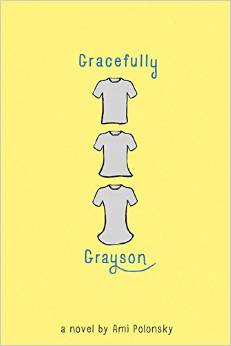 It is never easy writing fiction based on sensitive topics that polarise people’s opinions in real life. There are just so many elements to take into consideration. One is the fear of adding ambiguity to an already misunderstood subject and another is to end up dictating to the reader expected ethical and moral behaviours instead of allowing them to struggle, think, pose questions and come up with solutions based on their own perspective of the scenario in hand. The situation is further complicated when a particular work of writing is aimed at young readers addressing what many may consider ill-advised issues better left alone, which means that these subjects are less likely to have ever been discussed with parents, peers and educators regardless of whether the young reader is aware of them or not. So, a thorny question here would be: how does one present such work which, regardless of message, steers clear from off-putting, moralistic preaching as well as removes the stigma associated with airing such topics out in the open which will bridge the way for constructive discourse and ultimately more social awareness of pressing topics. Ami Polonsky’ s main character, Grayson, in her recent novel ‘Gracefully Grayson’ (out November 4) is a lonely, confused sixth-grader who lives with uncle Evan (dad’s brother), and his wife Sally, cousin Jack, and brother Brett. Grayson’s parents are dead. As life-altering an experience such as this is to contend with for any child, Grayson’s life is further complicated by a secret that consumes this child’s everyday life, dominating all thoughts and crippling any ability to fit in with classmates at school or even communicating with the once-friendly cousin, Jack, at home. The secret? Although born a boy, Grayson feels trapped in a body he does not want. With daydreams of how life as a girl could be, he is ridden by both happiness at the prospect that his dream may one day become reality and an acute feeling of dread that he will be ridiculed and judged. Events at home and a major one at school instigate a series of actions that will change not only Grayson’s life forever but also the lives of all those near and dear as they are forced to deal with the very taboo, very misunderstood subject of Gender Dysphoria. Ami Polonsky proves she is a worthy writer who has done her research well. I can find no more accurate, consummate adjective than ‘graceful’ when I tell people about this touching, beautifully written little book. A novel brimming with characters that are not only believable and well rounded yet are continuously growing and evolving. Polonsky manages to deal with all her characters with sensitivity and wisdom and when harsh judgments and stereotyping unavoidably break through to the surface she is sure to avoid sensationalism. A book of heroes. Expected publication: November 4, 2014 by Disney-Hyperion Check out Ami Polonsky's website HERE 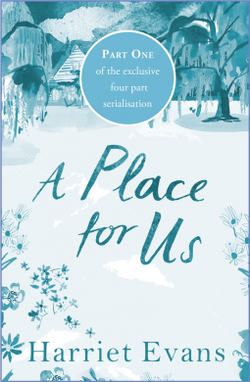 Martha and David Winter have raised their three children, Bill, Daisy, Florence and grandchild, Cat, in an idyllic home in Somerset named Winterfold. A ‘gentle, honest house, every inch of it made with care, refashioned with love’. All Martha and David had ever wanted was to ‘make a home, a place unlike their past. To give their children a childhood that would stay with them. To work hard, together. Be happy’. However, it is now, after forty-five years of living at Winterfold and on the occasion of her upcoming 80th birthday, that Martha has taken the decision ‘to tear her family apart’. Martha’s husband, David, the famous Wilbur cartoonist, has just gone down to London to presumably discuss the details of an upcoming exhibition, and Martha sits down to write the invite to her far away children and grandchildren requesting their presence at Winterfold for the two day birthday celebration in November. A day to include drinks with family and friends and a lunch the next day for ‘family only’ at which a ‘important announcement’ is to be made. Martha’s cryptic message sets in motion a series of events that take on a domino effect. Unknown to Martha, she is not the only Winter with a secret. Her invite, once in the hands of its recipients, conjures up the past of long-ago buried memories and threatens the exposure of personal secrets best kept concealed; Secrets if revealed would shatter not only the lives of the Winters themselves but those closely associated with them as well. Matters are not helped when Lucy, Martha’s granddaughter, decides to write a piece about the family history, for the daily tabloid she works for. Understandably, none agree to co-operate, each for their own reasons. The core of the story revolves mainly around the Winter’s middle child Daisy. All we know about her is that she is the inspiration for David’s children’s series ‘Wilbur and Daisy’ and that she fell pregnant at a very young age, only to abandon her child soon after preferring to help the less fortunate in India. It is evident early on in the novel, from the only chapter about her written as a diary entry when she was eight years old, that she is a very troubled character, unpleasant and mean to her brother (called him Billy Lily) and her two sisters especially Florence who she not only wanted to get rid of but blamed for moving to Winterfold, a place she hated from the very beginning. A dark character, ‘accidents’ have been known to occur when she is around. Her only loyalty is to her dog Wilbur whom she ‘loves more than anyone else in the whole world’. What we do know for sure though, is that it is the idea that Daisy will be present at the gathering that is setting everyone on edge. The Winter children are coming home except for Bill who never left Somerset choosing to remain close to his parents working as the town doctor. His second wife, Karen, has a secret of her own and wonders whether Martha has caught her out. She is after all, having an affair. Florence, now fifty, is a professor of art working in Italy. She will embark on the journey that has taken her twenty years to make to face her fears, realising with dread that she might know why her mother has summoned all of them back. Cat, a once promising fashion journalist is now penniless, ‘selling potted plants’ in a flower market in Paris. She is coming home too. But is it all too late? And what will her family think of this ‘different Cat now, the one she had always secretly feared becoming? A Cat who when doors bang she jumps. Will she be forced to reveal her secret too? And then there is Joe, the chef that Martha has hired to cater for the celebration. Somehow he has found himself caught up unawares with the Winters. Bill saves his life (or finger more like it), Lucy, Bill’s daughter has a huge crush on him and all the time he is desperately missing his son Jamie, who lives with his ex-wife and her new wealthy boyfriend. In this first part of the series Harriet Harman lays the foundation for a very promising, thrilling mystery novel. The characters are very engaging and it is easy to see readers choosing favourites early on. I know I have. And I know one more thing that is certain to happen too: Once you start reading you won’t want to stop. Why? Because the Winters have a way in which ‘they pulled you all in, all of them, without stopping to ask if you wanted to – it was crazy, charming, discombobulating’. I couldn’t agree more! Bring on the next part I say! 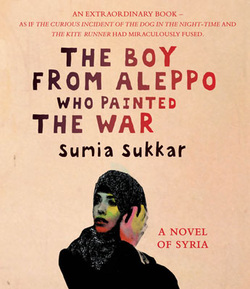 This is the story of Adam, a fourteen-year-old boy from Syria suffering from Asperger’s Syndrome. Living in Aleppo with his father, sister and three brothers (triplets) we meet Adam at the start of the country’s civil war. A war, according to Adam, that is ‘unfair’ with ‘no uniforms or clues’. The streets, once filled with the sounds of playing children are now empty and everything looks dusty. People hide, wary, cafes are abandoned and empty. Adam, due to his condition, lives cocooned in his little world following patterns that allow him the most comfort and in which he can better cope with the people around him. Adam is naïve to the ways of the world, awkward in the presence of strangers and only leaves the house on a school day. He enjoys TV, and reading but as most people with this syndrome, he develops a passionate, intense, almost obsessive interest in painting. Unable to translate his emotions, due to his condition, he sees the world through a wide range of color tagging each event, emotion and person with a specific hue. His brother Khalid is orange, Tariq is teal and Isa is green and ‘that’s how I can tell them apart’. As color is important in Adam’s life so it follows that the reader will get a sense of the atmosphere regardless of the fact that the narrator is of limited communicative skills. Adam narrates in a simplistic, even childish manner, yet the imagery he conveys is loud and clear, penetrating and resounding. He manages to draw a picture of the loss, the death, the carnage, and the mayhem of civil unrest. He loses family, friends, and those who he relies on for his survival. He recognizes the need for change and wills himself to adjust, succeeding at times, failing more often and it is tormenting to see such innocence trying to survive the most brutal of times. This is a tragic story about war, loss and death with many many instances of gruesome, disturbing scenes of abduction, rape, and executions. An upsetting book that mirrors the ongoing plight and reality of the people of Syria and what innocent civilians are having to go through on a daily basis with no end in sight. ‘I have the urge to paint and I can already see the painting in my head. Two young boys lying in the water with their bodies spread open, free, but their faces disfigured, burnt. It would be a black-and-white painting with the faces a spectrum of colors. It’s going to be horrible and beautiful all at the same time.’ - Adam Author Sumia Sukkar is a 21-year-old British writer of Syrian-Algerian ancestry. She grew up in London. This is her debut novel. |
Categories
All
|

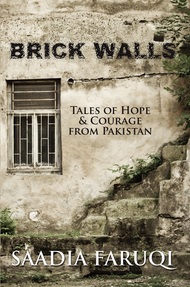
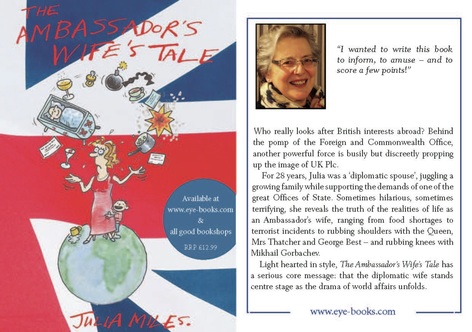
 RSS Feed
RSS Feed
